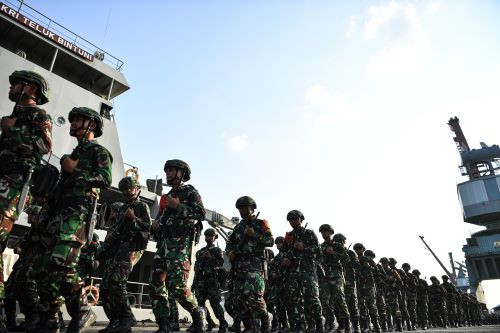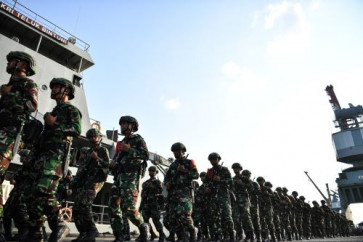Popular Reads
Top Results
Can't find what you're looking for?
View all search resultsPopular Reads
Top Results
Can't find what you're looking for?
View all search resultsPope Francis and Indonesian hypocrisy on Papua
Papua has been a silent witness to various human rights violations for decades, ranging from extrajudicial killings, torture, and forced disappearances to restrictions on freedom of expression and assembly.
Change text size
Gift Premium Articles
to Anyone
A
s the spiritual leader of Catholics worldwide, Pope Francis' visit to Indonesia was a moment that was eagerly awaited by many. His visit signified the importance of interfaith dialogue, universal brotherhood and the promotion of justice.
However, behind the pontiff’s warm welcome by the government and society at large, there exists a contrasting reality: Human rights violations in Papua have not been appropriately resolved until now.
Since the integration of Papua into Indonesian territory through the Act of Free Choice (Pepera) in 1969, the region has been a source of prolonged conflict. Many parties, including international organizations, have criticized the Pepera process, which is considered unfair and manipulative. As a result, the Papuan people's dissatisfaction with the central government continues to grow, which has been expressed in various forms such as protests, demands for independence and rebellion, that often end in military repression.
Papua has been a silent witness to various human rights violations for decades, ranging from extrajudicial killings, torture and forced disappearances to restrictions on freedom of expression and assembly. Reports from human rights organizations such as Amnesty International and Human Rights Watch have repeatedly noted that security forces have committed violence against the Papuan people.
At the same time, non-inclusive economic policies and the marginalization of indigenous Papuans have complicated the situation, exacerbating social, cultural and economic inequalities.
Human rights violations in Papua are also related to the massive exploitation of natural resources, especially in the mining and forestry sectors. Multinational companies often operate without considering the social and environmental impacts on local communities. Indigenous Papuans, who have strong cultural and spiritual ties to their land, have lost access to both their land and natural resources.
This economic marginalization is exacerbated by the development gap between Papua and other regions in Indonesia, resulting in significant differences in access to health services, education and basic infrastructure. Papuans also face negative stereotypes and discrimination in various aspects of life, including employment and education.



















